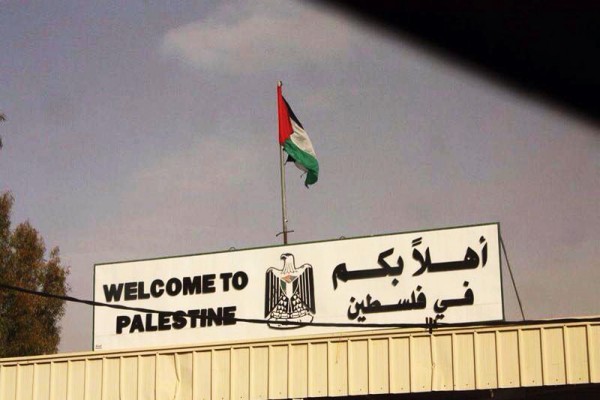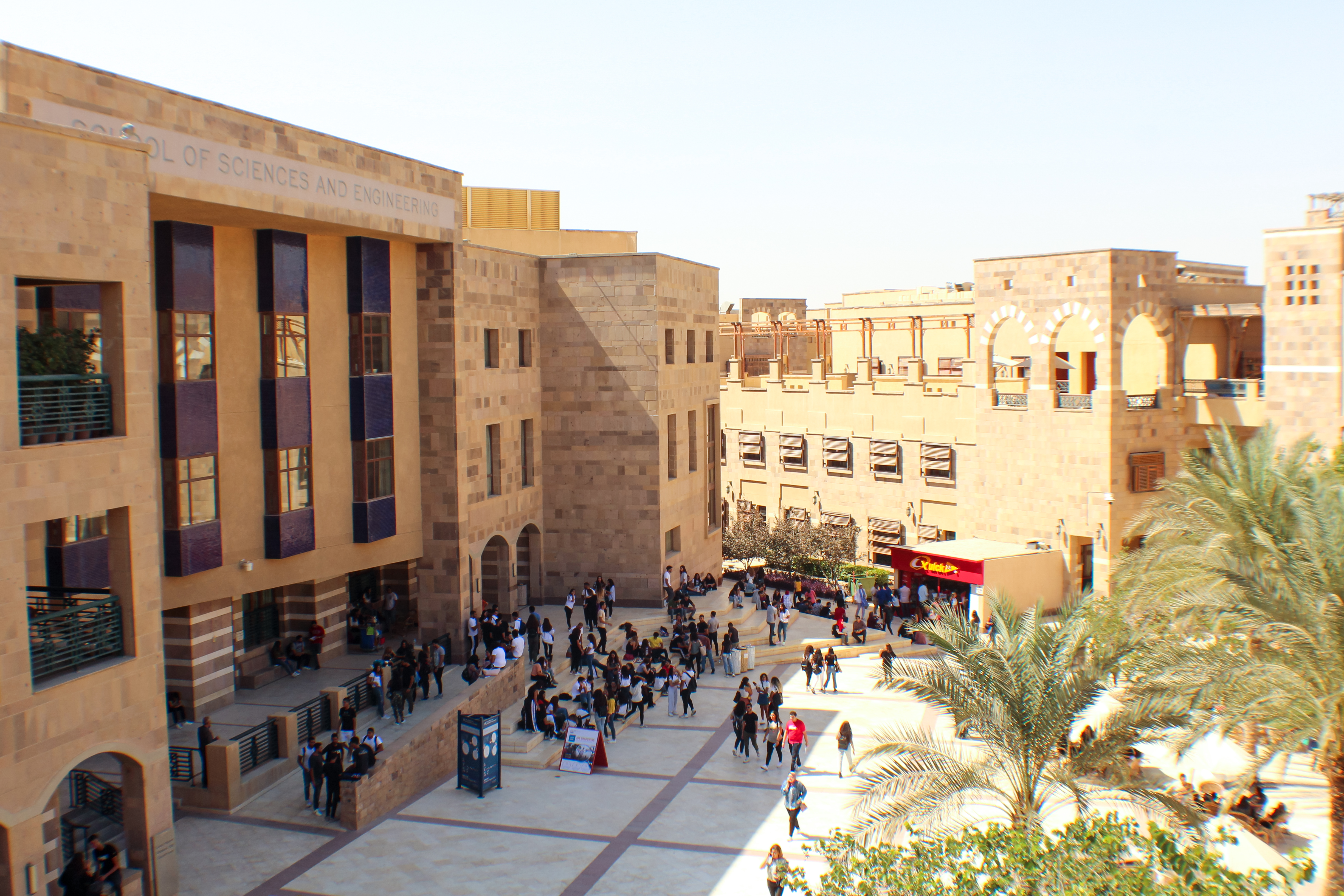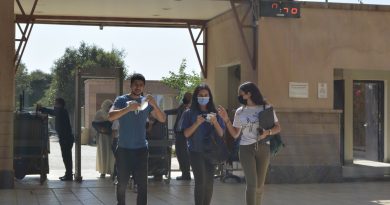Changing Mideast Realities Could Help Free Palestine, Says Scholar

Renowned poet and political science professor Tamim El Barghouti believes that the Israeli-Palestinian conflict can be resolved within the next 10 years, despite feelings of despair among new generations.
“I can sense the frustration in my students when it comes to the future of the Arab world in general and the Palestinian issue in particular,” El Barghouti said during his lecture titled Where to, Arabs? last week.
He added that there are several factors – including forging ties with growing economies like China and India while other economies falter – that could be used to increase the Middle East’s international power and, in turn, help to free Palestine.
“On the other hand, there is a collapse in the US economy that resulted from the unwise decisions made by [former President] George W. Bush,” he said.
The US and Israel’s economic and political power are further threatened by the growth of the Russian, Chinese and Iranian economies.
He said that the latter countries, which are currently in the process of growth, could decrease American power and with it Israel’s power as well.
El Barghouti added that there is evidence of decreasing interference of the US in the Middle East. For example, the US funds the Turkish military but since the power in Ankara is shifting away from the military to the people, the US’ influence in the country is diminishing.
El Barghouti also said that the Arab nation is a young one due to its recent demographic changes and this would both save Arab countries’ money and fuel it with power and energy.
“There is an increase in the number of Arabs aged 18 to 25 and this category of young people is the least costly for the state in terms of health and education,” he said.
!["You become a friend to Israel as long as you are not in a war with it,” El Barghouti says [Maram Sha'at]](http://www.auccaravan.com/wp-content/uploads/2014/11/10723589_10154813948080038_1510099593_n-5.05.31-PM-e1416942806935.jpg)
However, he believes that the aforementioned factors are merely external dynamics that can only work as catalysts.
He said that the Arab nation should not depend on catalysts but should rather depend on its people, who have proved their power throughout history.
“Nobody expected the Israeli troops to withdraw from Sinai or later from the South of Lebanon. However, this happened because of the coalition of the Arab countries at these times,” said Kazziha.
However, both El Barghouti and Kazziha agree that the Arabs are currently not utilizing these factors well and are focusing on other matters such as the crises in Syria and Iraq.
El Barghouti added that these distractions offer Israel a “golden opportunity” to do whatever it wants in Palestine.
“You become a friend to Israel as long as you are not in a war with it,” he said.
Kazziha added that the situation in Syria and Iraq is “catastrophic” because it has dispersed the Arab people and pushed them to call for the involvement of foreign forces.
“You know we have reached the stage of insanity when people start to call the US to interfere in the Arab world to save the situation,” said Kazziha.
He added that although people are highlighting the dangers of the Islamic State of Iraq and Syria, it is not the main concern at the time being.
“We face three types of enemies now: The Arab ruling systems, the foreign interference and the regional coalition that aims to fail any attempt to reach a [Palestinian-Israeli] resolution,” said Kazziha.
El Barghouti added that there are currently two possible Palestinian-Israeli resolutions, the first of which would see the Palestinian people taking lands in the West Bank and the Gaza Strip, while Israel takes the rest of the land. In this scenario, Jerusalem would be a joint capital for both countries.
“According to this solution, the West Bank and the Gaza strip will be connected only through Israel itself, which is not fair,” said El Barghouti.
Although this solution was suggested in previous treaties, it only aimed at building a Palestinian state whose safety is dependent on the security of Israel.
El Barghouti added that the only other solution is to “put an end to the Zionist racist Israeli state”.
Kazziha said that it is crucial for Arab youth to join, discuss and formulate resistance tactics and suggest resolutions.
He added, “We should increase the dialogue among the young Arabs and try to put the differences and conflicts aside. It is possible to succeed or fail but it is important to start”


